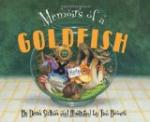As they grow older they are allowed to attend late dances that necessitate remaining in bed the next morning until eleven or twelve o’clock; they are told that their future happiness depends on their ability to attract the right kind of man; they are instructed in every art save that of being useful members of society; and in the ease, luxury and vacuity with which they are surrounded their lives parallel those of demi-mondaines. Indeed, save for the marriage ceremony, there is small difference between them. The social butterfly flutters to the millionaire as naturally as the night moth of the Tenderloin. Hence the tendency to marry money is greater than ever before in the history of civilization.
Frugal, thrifty lives are entirely out of fashion. The solid, self-respecting class, which wishes to associate with people of equal means, is becoming smaller and smaller. If an ambitious mother cannot afford to rent a cottage at Newport or Bar Harbor she takes her daughter to a hotel or boarding house there, in the hope that she will be thrown in contact with young men of wealth. The young girl in question, whose father is perhaps a hardworking doctor or business man, at home lives simply enough; but sacrifices are made to send her to a fashionable school, where her companions fill her ears with stories of their motors, trips to Europe, and the balls they attend during the vacations. She becomes inoculated with the poison of social ambition before she comes out.
Unable by reason of the paucity of the family resources to buy luxuries for herself, she becomes a parasite and hanger-on of rich girls. If she is attractive and vivacious so much the better. Like the shopgirl blinded by the glare of Broadway, she flutters round the drawing rooms and country houses of the ultra-rich seeking to make a match that will put luxury within her grasp; but her chances are not so good as formerly.
To-day the number of large fortunes has increased so rapidly that the wealthy young man has no difficulty in choosing an equally wealthy mate whose mental and physical attractions appear, and doubtless are, quite as desirable as those of the daughter of poorer parents. The same instinct to which I have confessed myself, as a professional man, is at work among our daughters and sons. They may not actually judge individuals by the sordid test of their ability to purchase ease and luxury, but they take care to meet and associate with only those who can do so.
In this their parents are their ofttimes unconscious accomplices. The worthy young man of chance acquaintance is not invited to call—or, if he is, is not pressed to stay to dinner. “Oh, he does not know our crowd!” explains the girl to herself. The crowd, on analysis, will probably be found to contain only the sons and daughters of fathers and mothers who can entertain lavishly and settle a million or so on their offspring at marriage.
There is a constant attraction of wealth for wealth. Poverty never attracted anything. If our children have money of their own that is a good reason to us why they should marry more money. We snarl angrily at the penniless youth, no matter how capable and intelligent, who dares cast his eyes on our daughter. We make it quite unambiguous that we have other plans for her—plans that usually include a steam yacht and a shooting box north of Inverness.




